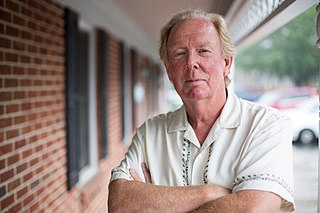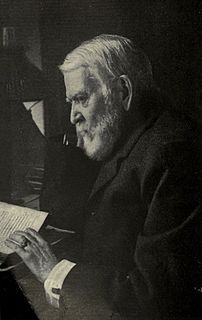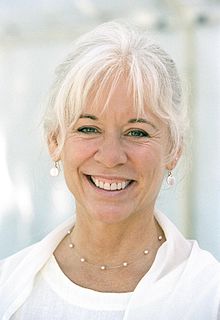A Quote by Horace
Suffering is but another name for the teaching of experience, which is the parent of instruction and the schoolmaster of life.
Quote Topics
Related Quotes
The traditional paradigm of parenting has been very hierarchical, the parent knows best and very top down. Conscious parenting topples [this paradigm] on its head and creates this mutuality, this circularity where both parent and child serve each other and where in fact, perhaps, the child could be even more of a guru for the parent .... teaching the parent how the parent needs to grow, teaching the parent how to enter the present moment like only children know how to do.
The schoolmaster is the person who takes the children off the parents' hands for a consideration. That is to say, he establishes a child prison, engages a number of employee schoolmasters as turnkeys, and covers up the essential cruelty and unnaturalness of the situation by torturing the children if they do not learn, and calling this process, which is within the capacity of any fool or blackguard, by the sacred name of Teaching.
What is less often noticed is that it is precisely the kind of moral instruction that parents are constantly trying to give their children — concrete, imaginative, teaching general principles from particular instances, and seeking all the time to bring the children to appreciate and share the parent's own attitudes and view of life… The all-embracing principles of conduct
It has been said that the essence of teaching is causing another to know. It may similarly be said that the essence of training is causing another to do. Teaching gives knowledge. Training gives skill. Teaching fills the mind. Training shapes the habits. Teaching brings to the child that which he did not have before. Training enables a child to make use of that which is already his possession.
So the Buddha is presenting awakening not as a single mystical experience that may come upon us at some meditation, some private moment of transcendence, but rather as a new engagement with life. He is offering us a relationship to the world that is more sensitized to suffering and the causes of suffering, and he gives rise to the possibility of another kind of culture, another kind of civilization.
To experience poetry is to see over and above reality. It is to discover that which is beyond the physical, to experience another life and another level of feeling. It is to wonder about the world, to understand the nature of people and, most importantly, to be shared with another, old or young, known or unknown.
Differentiated Instruction is a teaching philosophy based on the premise that teachers should adapt instruction to student differences. Rather than marching students through the curriculum lockstep, teachers should modify their instruction to meet students' varying readiness levels, learning preferences, and interests. Therefore, the teacher proactively plans a variety of ways to 'get it' and express learning.
Fear of death is understandable, being that we are all going to die, but fear of life and suffering is more of an irrational fear because it's something that can be avoided. The torturous part is that suffering can be avoided if you have good luck. That's somewhat out of our hands, but is it? I don't know. "Is bad luck self-harm by another name?"
We have tried everything to get rid of suffering. We have gone everywhere to get rid of suffering. We have bought everything to get rid of it. We have ingested everything to get rid of it. Finally, when one has tried enought, there arises the possibility of spiritual maturity with the willingness to stop the futile attempt to get rid of it and, instead, to actually experience suffering. In that momentous instant, there is the realization of that which is beyond suffering, of that which is untouched by suffering. There is the realization of who one truly is.
The Passion of Christ was an experience which included in itself every experience except sin, of every member of the human race. If one may say this with reverence, the fourteen incidents of the Stations of the Cross show not only the suffering but the Psychology of Christ. Above all, they show, in detail, his way of transforming suffering by love. He shows us, step by step, how that plan of love can be carried out by men, women, and children today, both alone in the loneliness of their individual lives and together in communion with one another.
The world is full of suffering. Birth is suffering, decre- pitude is suffering, sickness and death are sufferings. To face a man of hatred is suffering, to be separated from a beloved one is suffering, to be vainly struggling to satisfy one's needs is suffering. In fact, life that is not free from desire and passion is always involved with suffering.







































